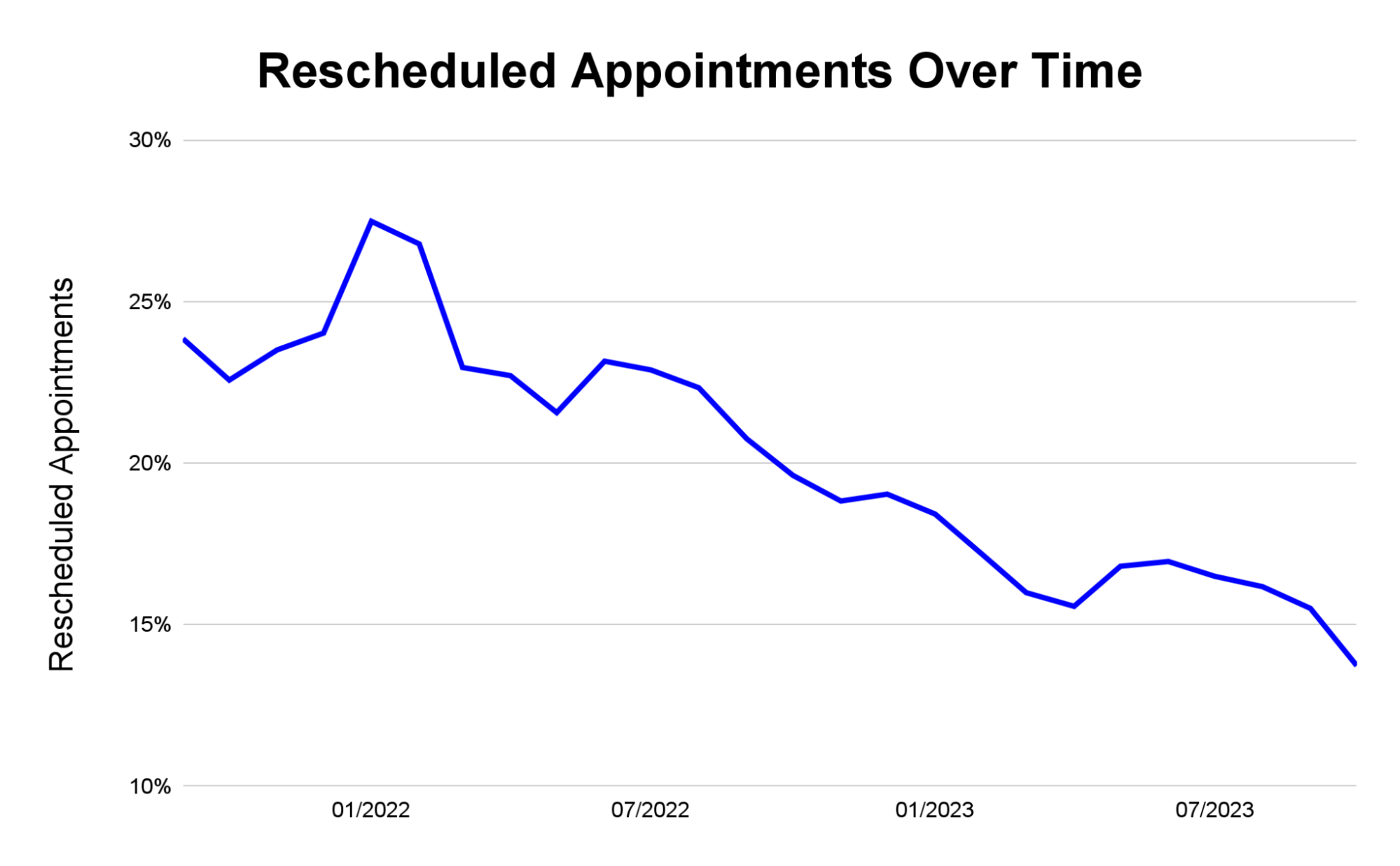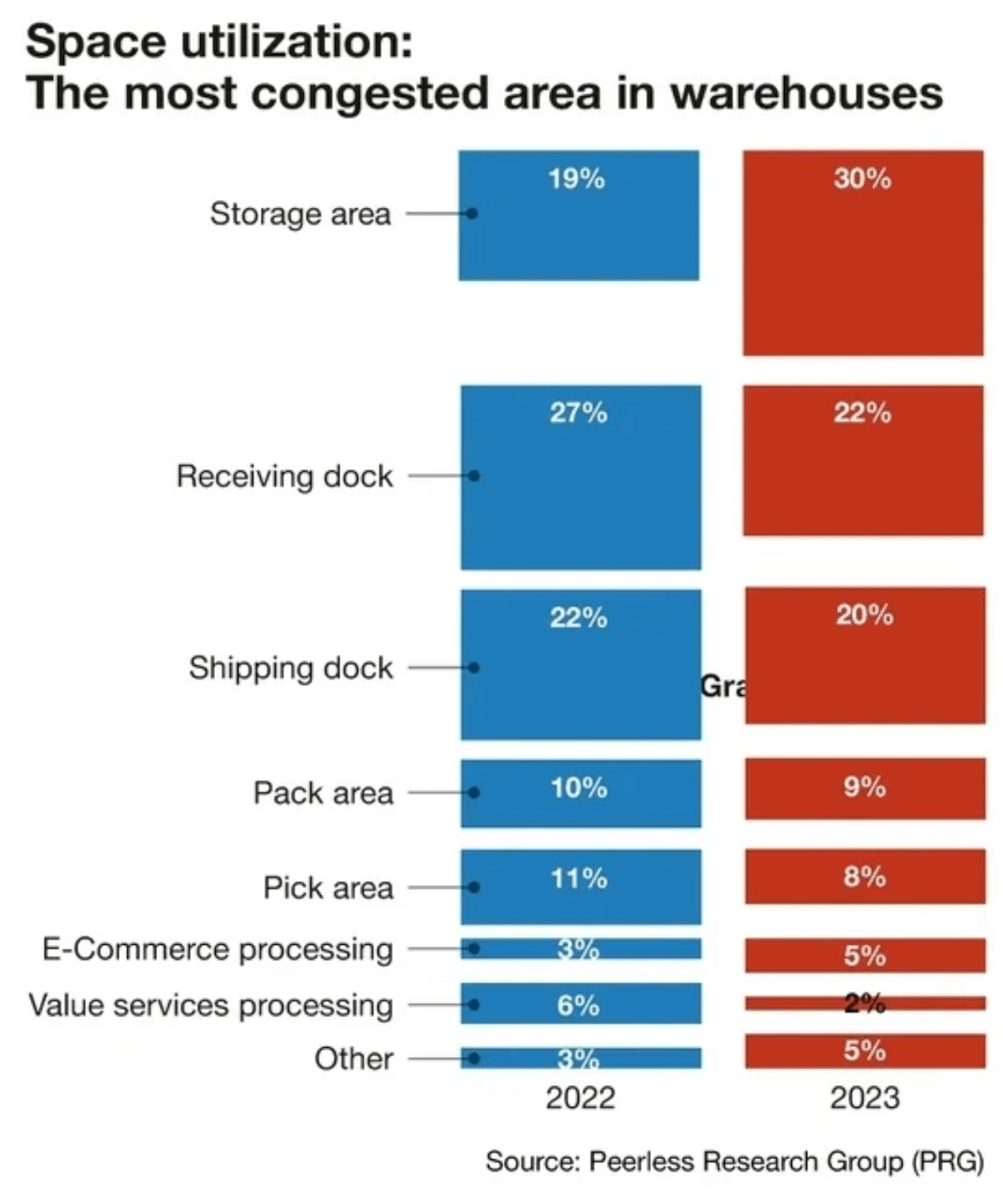
Using a time slot management system creates a predictable environment where companies thrive.
In our personal lives, nothing is more disruptive than an appointment that gets rescheduled repeatedly. Now imagine if nearly 25% of those appointments – dropping kids off at school, the dentist, and coffee with friends – were rescheduled. How chaotic would your life be? Could you get anything done if you have to continually pick up the pieces and reorient your life to a new commitment? How confident would you be in preparing for your plans? Would you rush to prepare for something if there were a 1 in 4 chance it would be rescheduled?
When FourKites launched Appointment (Slot) Manager two years ago, we saw a pretty concerning trend within our customer base: the rescheduling rate for Fortune 500 companies in the first month was nearly 25% after creation. Of those 25%, roughly 60% were at the carrier’s request, and 40% were at the facility’s request, telling us that the problem was more or less mutually shared.
This unpredictability undermines the countless time, money, and resources poured into making supply chains more efficient. And with higher unpredictability, teams are less likely to complete tasks within budgeted time or accurately, and overall operations are slowed by constant reshuffling.
While Appointment Manager makes rescheduling easier, FourKites customers have actually been able to reduce rescheduling altogether. The 25% of rescheduled appointments we saw two years ago has been reduced by nearly half to 13% and shows signs of continued shrinkage – even as appointment volumes continued to grow.
How can improved appointment scheduling help your team reduce reschedules and maximize productivity? Let’s take a closer look.

Odds are, you’re curious if you are scheduling more freight than your facility can handle. Are you using the wrong carrier mix? Are service level agreements not being adhered to? How often are your calendars getting shuffled? And on top of that, you’re wondering where the reschedules are coming from – your teams or your carrier network? Finding that baseline can shed light on other bottlenecks in your facilities.
The right benchmarks and measurements are critical to ensure your facility network runs optimally. You can’t solve a problem if you simply can’t see or measure your success. Moving to an automated, digital environment that can passively absorb network data and create detail-rich reports is the first step in creating stability in your operations.
If you’ve walked through a facility in your network lately, you’ve probably seen a concerning pattern. There’s a lot of inventory and little space to keep it. The problem is made worse when teams hold deliveries at the dock door until space can be freed up or wait to get to it after a certain delivery.
Now add in an inconsistent calendar. That free spot that they plan to use for some pallets from the receiving dock? They urgently slotted in a delivery, and now the congestion is even worse.
What does this do to your facility? It creates overtime, lost product, damage, and an unsafe team environment.
By implementing a slot management system (such as Appointment Manager), you can build consistency and structure with custom calendars and business rules, providing greater control over the factors that cause a facility to reschedule a carrier, ultimately reducing the chaotic congestion in the facility.

There will always be that slice of life that creates unpredictability – the major snowstorm, the flat tire, the sick driver – all of which can’t be accounted for by a well-orchestrated calendar. These disruptions still require some sort of notification to your teams so they can update their calendars and shuffle plans.
That doesn’t mean you need to wait for a phone call, though.
The platform you evaluate for reining in your site schedules should be directly connected to your network. Rather than waiting for a phone call to hear that a flat tire has blown your timeslot expectations, having a push notification surface at a user’s fingertips can mean a plan is already in motion before a driver reaches for their cell phone to notify dispatch of a problem.
Manually rescheduling appointments at distribution centers and warehouses is a thing of the past. With business rules in hand, AI-generated ETAs, and digitized facility schedules, companies like FourKites can do the rest. When an exception occurs, the next best timeslot based on a litany of factors will be scheduled automatically, and a new schedule will be published.
That means the only notification your team gets is that there’s a new schedule as soon as it happens.
With greater visibility within our customers’ supply chains, new AI-enabled automation, and improved dependability – our network is already rolling towards breaking the 10% reschedule barrier.
If you’re looking for greater stability within your operations and need to curb the frustrating behavior of rescheduling, let us know – we’re here to help. Contact us at [email protected] for more information.